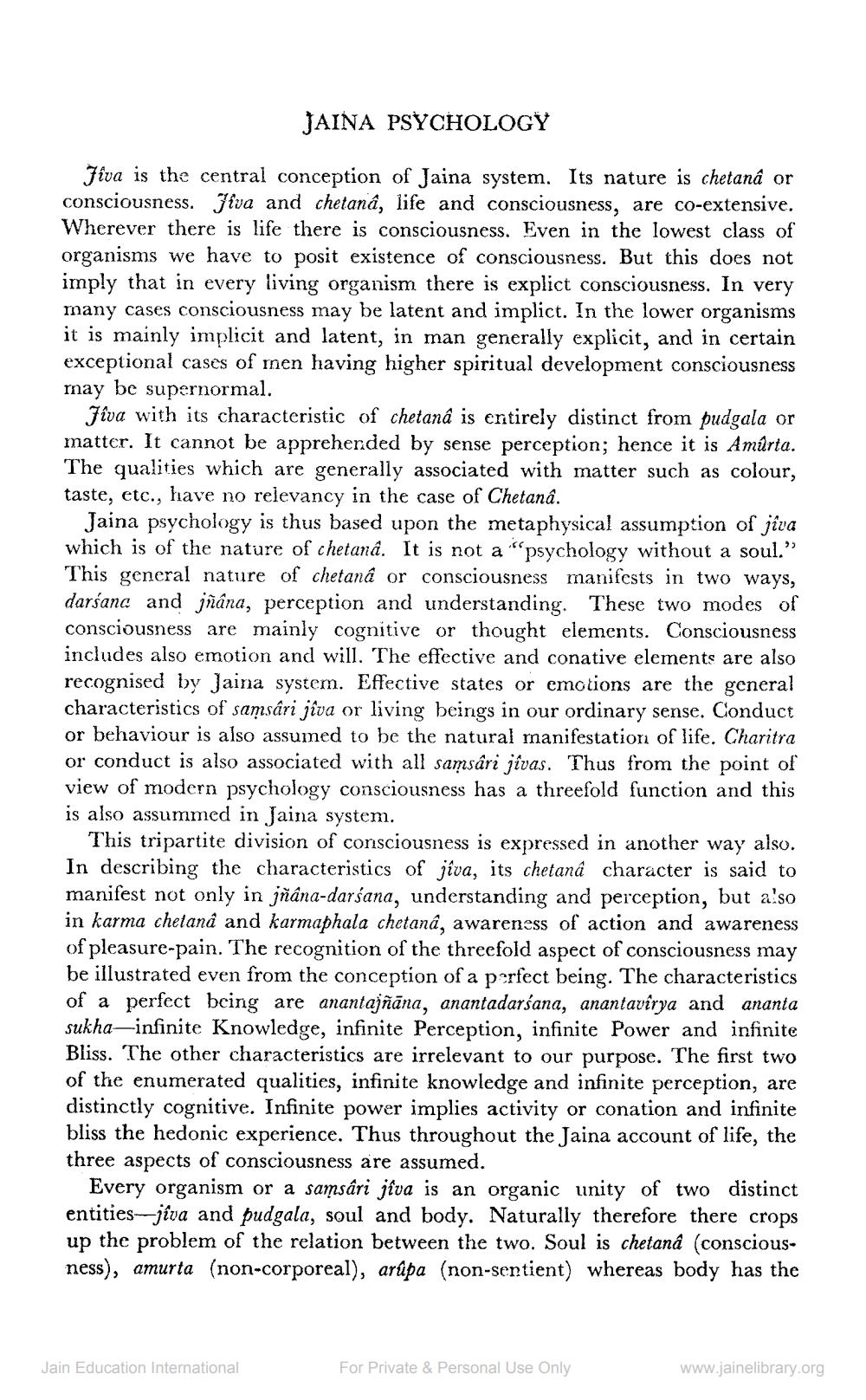________________
JAINA PSYCHOLOGY
Jiva is the central conception of Jaina system. Its nature is chetanâ or consciousness. Jiva and chetana, life and consciousness, are co-extensive. Wherever there is life there is consciousness. Even in the lowest class of organisms we have to posit existence of consciousness. But this does not imply that in every living organism there is explict consciousness. In very many cases consciousness may be latent and implict. In the lower organisms it is mainly implicit and latent, in man generally explicit, and in certain exceptional cases of men having higher spiritual development consciousness may be supernormal.
Jîva with its characteristic of chetana is entirely distinct from pudgala or matter. It cannot be apprehended by sense perception; hence it is Amûrta. The qualities which are generally associated with matter such as colour, taste, etc., have no relevancy in the case of Chetana.
Jaina psychology is thus based upon the metaphysical assumption of jiva which is of the nature of chetanå. It is not a "psychology without a soul.” This general nature of chetanâ or consciousness manifests in two ways, darśanc and jñâna, perception and understanding. These two modes of consciousness are mainly cognitive or thought elements. Consciousness includes also emotion and will. The effective and conative elements are also recognised by Jaina system. Effective states or emotions are the general characteristics of samsári jîva or living beings in our ordinary sense. Conduct or behaviour is also assumed to be the natural rnanifestation of life. Charitra or conduct is also associated with all samsâri jîvas. Thus from the point of view of modern psychology consciousness has a threefold function and this is also assummed in Jaina system.
This tripartite division of consciousness is expressed in another way also. In describing the characteristics of jíva, its chetanâ character is said to manifest not only in jňâna-darśana, understanding and perception, but a so in karma chetana and karmaphala chetanâ, awareness of action and awareness of pleasure-pain. The recognition of the threefold aspect of consciousness may be illustrated even from the conception of a perfect being. The ch of a perfect being are anantajñāna, anantadarśana, anantavirya and ananta sukha-infinite Knowledge, infinite Perception, infinite Power and infinite Bliss. The other characteristics are irrelevant to our purpose. The first two of the enumerated qualities, infinite knowledge and infinite perception, are distinctly cognitive. Infinite power implies activity or conation and infinite bliss the hedonic experience. Thus throughout the Jaina account of life, the three aspects of consciousness are assumed.
Every organism or a samsâri jîva is an organic unity of two distinct entities-- jiva and pudgala, soul and body. Naturally therefore there crops up the problem of the relation between the two. Soul is chetanâ (consciousness), amurta (non-corporeal), arûpa (non-sentient) whereas body has the
Jain Education International
For Private & Personal Use Only
www.jainelibrary.org




